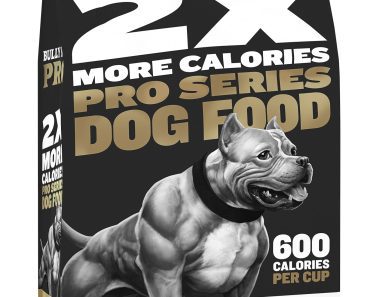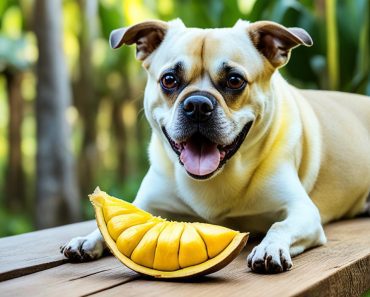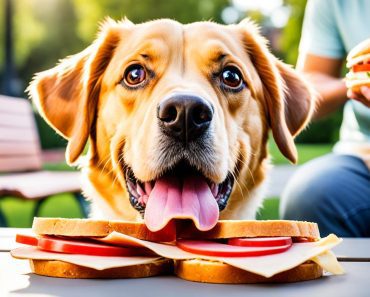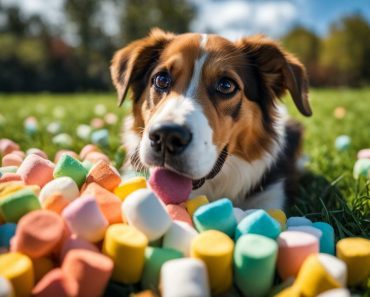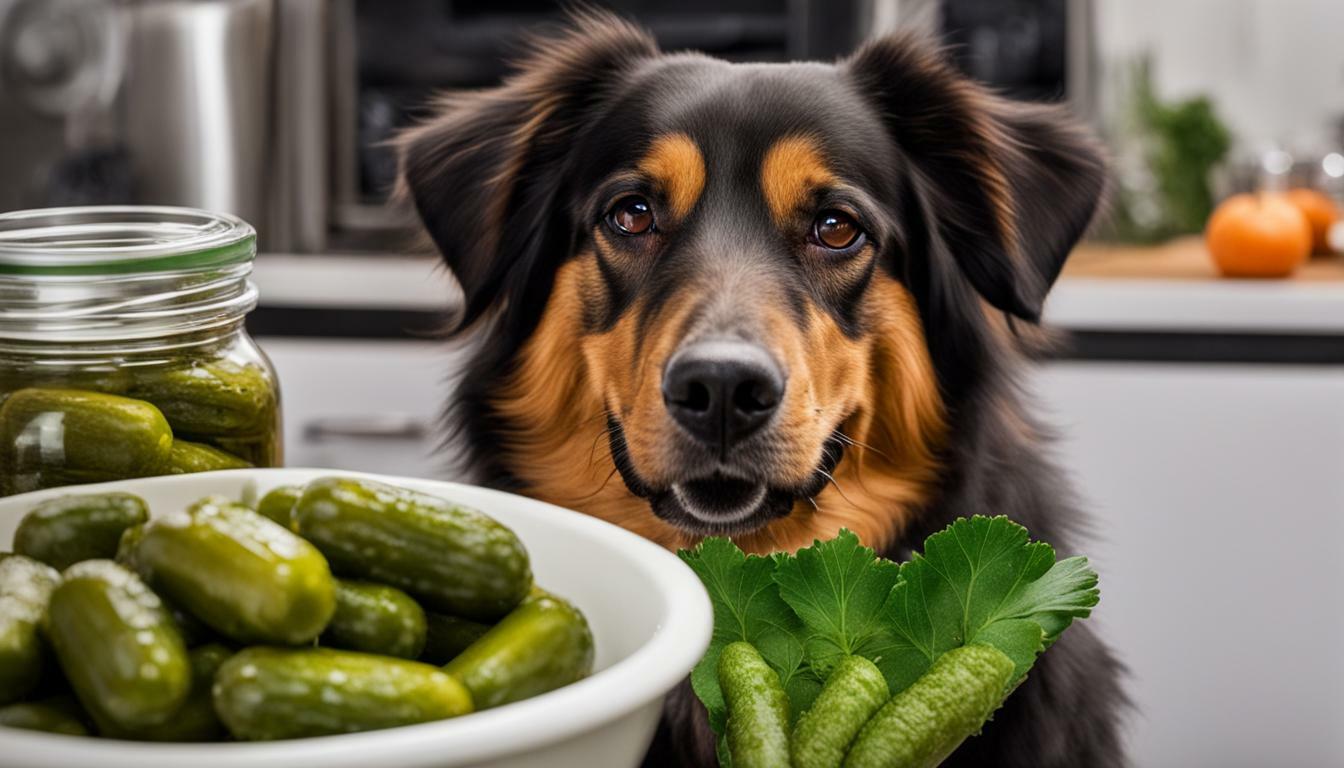
If you’ve ever wondered, “Can dogs eat dill pickles?” we have the answers you need. As a responsible pet owner, it’s natural to want to share a tasty treat with your furry friend. However, when it comes to dill pickles, caution is advised. While pickles may not be inherently harmful to dogs, they do pose certain risks that can negatively impact their health.
The high sodium content in dill pickles is one concern. Dogs have different dietary needs than humans, and excessive sodium can lead to health issues like dehydration, electrolyte imbalances, and even kidney problems. Additionally, dill pickles often contain ingredients like garlic and onions, which are toxic to dogs and can cause digestive upset or even more serious complications.
Key Takeaways:
- Dill pickles are not recommended for dogs due to their high sodium content and potential toxicity from ingredients like garlic and onions.
- Excessive sodium in pickles can lead to dehydration, electrolyte imbalances, and kidney problems in dogs.
- Cucumbers are a safer alternative for dogs as they provide similar vitamins and minerals without the harmful additives found in pickles.
- It is crucial to consult with a veterinarian before introducing any new food into your dog’s diet.
- Remember, what may be safe for humans to consume may not necessarily be safe for our canine companions.
As a responsible pet owner, it’s important to prioritize your dog’s health and well-being. While it may be tempting to share a dill pickle with your furry friend, it’s best to opt for safe alternatives like cucumbers. Always consult with your veterinarian to ensure you’re making the best dietary choices for your beloved pet.
The Potential Risks of Dill Pickle Consumption for Dogs
While dogs may seem curious about dill pickles, there are some potential risks that come with them consuming these tangy treats. It’s important for pet owners to be aware of these risks to ensure the well-being of their canine companions.
One of the main concerns is the high sodium content found in dill pickles. Dogs have a much lower tolerance for sodium compared to humans, and consuming excessive amounts can lead to various health issues. The high sodium content can be problematic for dogs with underlying medical conditions, such as kidney or heart problems. It can cause side effects such as excessive thirst, vomiting, and diarrhea.
In addition to the high sodium content, dill pickles often contain ingredients like garlic and onions, which can be toxic to dogs. These ingredients can cause anemia and damage red blood cells in dogs, leading to serious health complications. It’s crucial to avoid feeding pickles or any foods containing these ingredients to ensure the safety of our furry friends.
Fortunately, there is a safer alternative to dill pickles for dogs – cucumbers. Cucumbers are low in calories and do not contain the same harmful ingredients as pickles. They are a hydrating and refreshing snack that can provide dogs with similar vitamins and minerals without the potential harm. However, it’s still important to feed cucumbers in moderation and consult with a veterinarian before incorporating any new food into a dog’s diet.

In conclusion, while dogs may show curiosity towards dill pickles, it’s best to avoid feeding them to your furry friends due to the potential risks involved. The high sodium content and toxic ingredients can lead to adverse effects on their health. Instead, consider offering cucumbers as a safe alternative. Always prioritize your dog’s well-being by consulting with a veterinarian before introducing new foods into their diet.
The High Sodium Content in Dill Pickles and its Impact on Dogs
Dill pickles have a high sodium content, which can have negative effects on a dog’s health. Dogs are more sensitive to sodium than humans, and excessive consumption can lead to dehydration and potential kidney damage. It is important to remember that the recommended daily intake of sodium for a dog is significantly lower than that of a human.
The high sodium content in dill pickles can pose risks to dogs with certain medical conditions, such as heart disease or high blood pressure. These dogs are especially vulnerable to the detrimental effects of excessive sodium intake. Symptoms of sodium toxicity in dogs may include increased thirst, vomiting, diarrhea, and in severe cases, seizures or coma.
A healthier alternative to dill pickles for dogs is cucumbers. Cucumbers are low in sodium and provide similar vitamins and minerals as pickles without the negative ingredients. They are a refreshing and hydrating snack that can be enjoyed by dogs without the risk of sodium overload. It is always best to consult with a veterinarian before introducing any new food into a dog’s diet to ensure it is safe and appropriate for their specific needs.
| Symptoms of Sodium Toxicity in Dogs | Recommended Daily Sodium Intake for Dogs |
|---|---|
|
20-40 mg of sodium per pound of body weight |
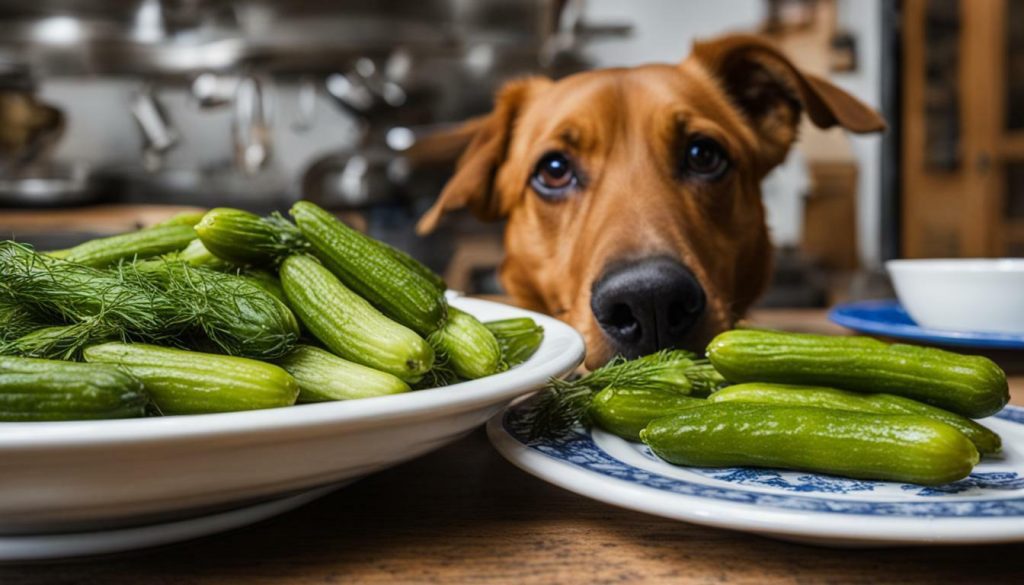
Toxic Ingredients in Dill Pickles that Can Harm Dogs
While you might enjoy the taste of dill pickles, there are ingredients in them that can be harmful to your furry friend. Dogs should avoid consuming dill pickles due to the potential risks associated with certain ingredients. One such ingredient is garlic, which is often used in the pickling process. Garlic contains a compound called thiosulfate, which can be toxic to dogs and cause damage to their red blood cells.
In addition to garlic, dill pickles often contain onions, another ingredient that can be harmful to dogs. Onions contain a substance called N-propyl disulfide, which can lead to a condition called hemolytic anemia in dogs. This condition destroys the dog’s red blood cells, leading to weakness, lethargy, and even organ damage if left untreated.
To ensure the well-being of your dog, it’s important to avoid feeding them dill pickles altogether. Instead, opt for safer alternatives like cucumbers. Cucumbers are low in calories and rich in vitamins and minerals, making them a healthy snack option for dogs. They are also hydrating and can help keep your dog cool in the summer months. Just remember to remove the skin and seeds before feeding cucumbers to your dog, as these parts can be difficult to digest.
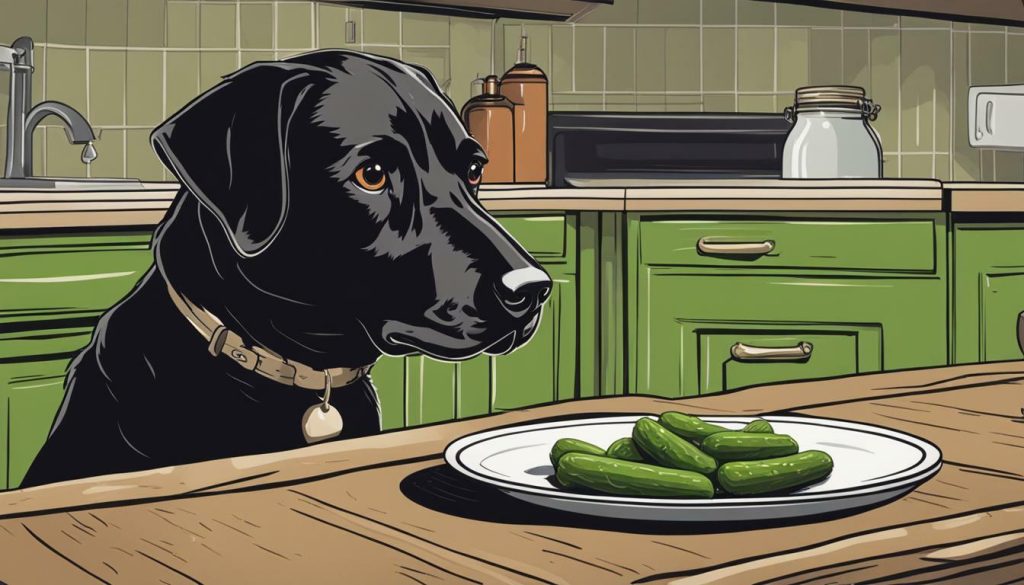
In summary:
- Dill pickles contain ingredients like garlic and onions, which can be harmful to dogs.
- Garlic can damage a dog’s red blood cells, while onions can lead to hemolytic anemia.
- Cucumbers are a safer alternative to dill pickles, providing similar vitamins and minerals without the harmful ingredients.
- Consult with your veterinarian before introducing any new food into your dog’s diet.
Remember, as a responsible pet owner, it’s crucial to prioritize your dog’s health and well-being. By avoiding dill pickles and opting for safer alternatives, you can ensure that your furry friend stays happy and healthy!
The Safer Alternative – Cucumbers for Dogs
If you’re looking for a safer alternative to dill pickles, consider introducing cucumbers into your dog’s diet. These crisp and refreshing vegetables provide a similar taste and texture to pickles without the potential health risks.
Cucumbers are not only safe for dogs to eat but also offer several health benefits. They are low in calories and fat, making them an excellent option for dogs who need to maintain a healthy weight. Additionally, cucumbers are a great source of hydration as they are primarily composed of water, which can be especially beneficial during hot summer months. They also contain essential vitamins and minerals, such as vitamin K and potassium, which contribute to your dog’s overall well-being.
When giving cucumbers to your dog, it is important to ensure they are prepared correctly. It is best to remove the skin and seeds as they may be difficult for your dog to digest. Sliced cucumbers make for a convenient and enjoyable snack for your furry friend. You can even freeze cucumber slices for a cool and soothing treat on hot days.
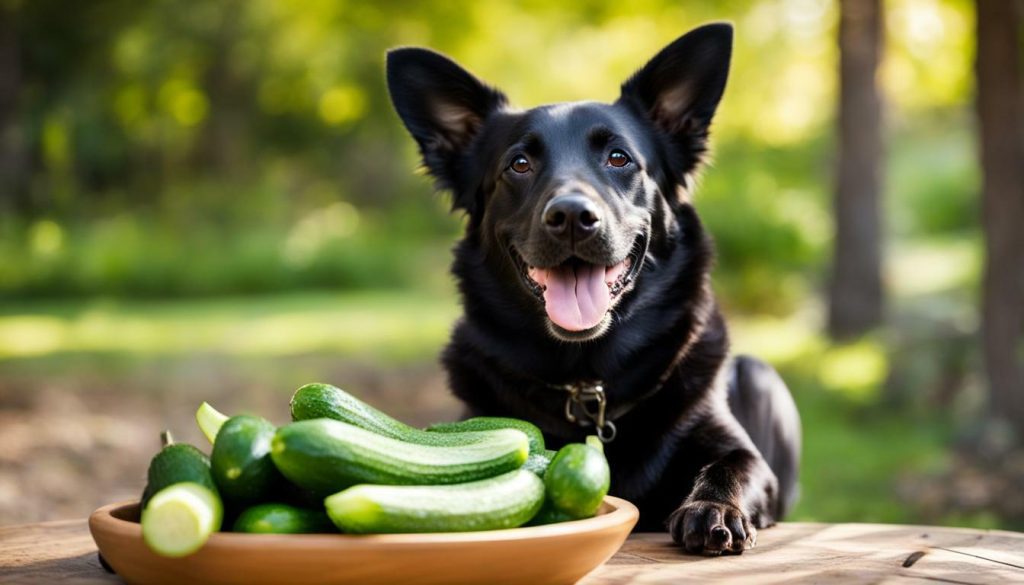
Remember, it’s always essential to consult with your veterinarian before introducing any new food into your dog’s diet. They can provide tailored advice based on your dog’s specific health needs and dietary requirements.
| Vitamins and Minerals in Cucumbers | Benefits for Dogs |
|---|---|
| Vitamin K | Aids in blood clotting and bone health |
| Potassium | Supports heart and muscle function |
| Vitamin C | Boosts the immune system |
| Magnesium | Helps regulate nerve and muscle function |
By incorporating cucumbers into your dog’s diet, you can provide them with a delicious and nutritious snack option. Not only are cucumbers safe for dogs to eat, but they also offer a range of health benefits. So, next time you’re reaching for a dill pickle, consider sharing a crunchy cucumber slice with your beloved canine companion.
Conclusion
While dogs can technically eat dill pickles, it’s best to proceed with caution due to the potential risks involved. Pickles, particularly those made with garlic and onions, can be toxic to dogs. Additionally, the high sodium content in dill pickles can be problematic, especially for dogs with underlying medical conditions.
The consumption of high-sodium foods like dill pickles can lead to side effects such as excessive thirst, vomiting, and diarrhea in dogs. These symptoms can be uncomfortable and may cause further health complications. Therefore, it is important for pet owners to be mindful of the sodium content in the food they offer to their furry friends.
Fortunately, there is a safer alternative – cucumbers. Cucumbers provide dogs with a similar crunch and refreshing taste without the potential harm. They are low in calories and contain the same vitamins and minerals as pickles, making them a healthy snack option for dogs.
As a responsible pet owner, it is always best to consult with a veterinarian before introducing any new food into your dog’s diet. They can provide personalized guidance based on your dog’s specific needs, health conditions, and dietary requirements. Your veterinarian will be able to advise you whether it is safe for your dog to consume dill pickles or if they should stick to other healthier options, such as cucumbers.
FAQ
Can dogs safely eat dill pickles?
While pickles aren’t necessarily harmful, they are high in sodium, which is not healthy for dogs. They also contain ingredients like garlic and onions that can be toxic to dogs.
What are the potential risks of dogs consuming dill pickles?
The high sodium content in dill pickles can be problematic for dogs with underlying medical conditions. It can cause side effects such as excessive thirst, vomiting, and diarrhea.
Can dogs eat cucumbers as a safer alternative to dill pickles?
Yes, cucumbers are safe for dogs to eat and contain the same vitamins and minerals as pickles without the negative ingredients. It’s a healthier option for your canine companion.
Are there any toxic ingredients in dill pickles that can harm dogs?
Yes, dill pickles can contain ingredients like garlic and onions, which are toxic to dogs. It’s important to avoid feeding them these harmful substances.
Should I consult a veterinarian before giving my dog dill pickles or any new food?
Yes, it is always best to consult with a veterinarian before introducing a new food into your dog’s diet. They can provide personalized advice and guidance based on your dog’s specific needs and health condition.

